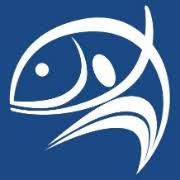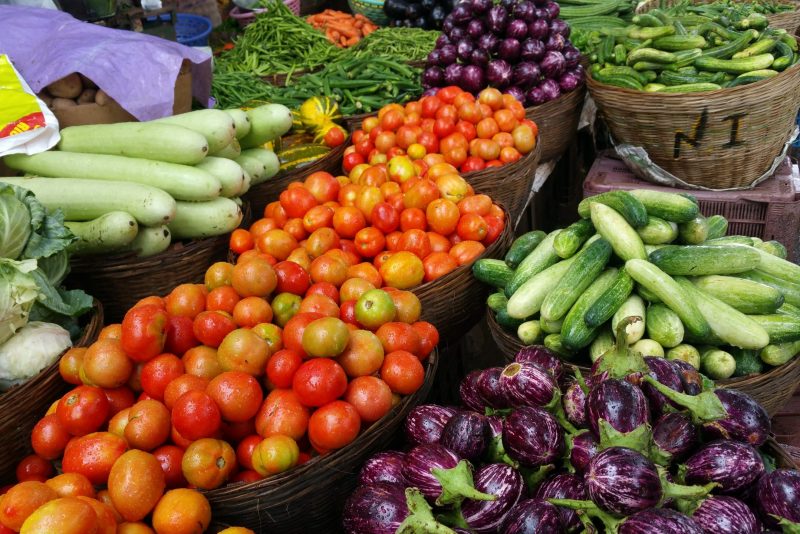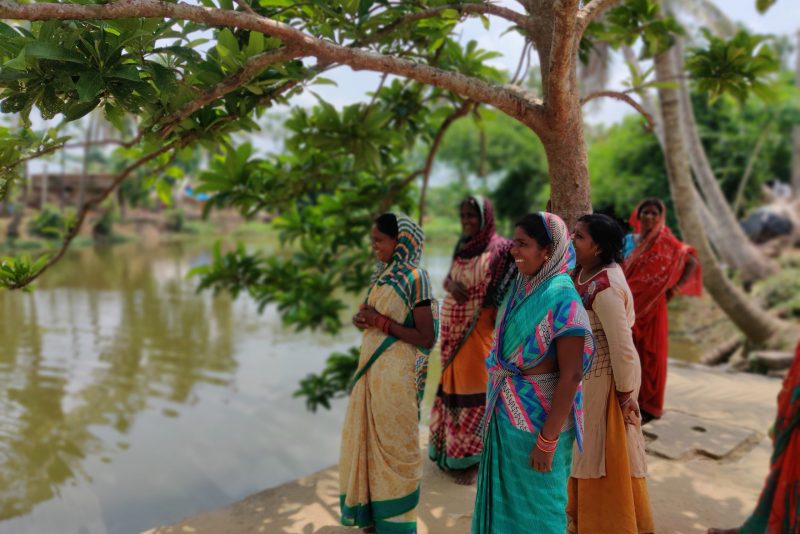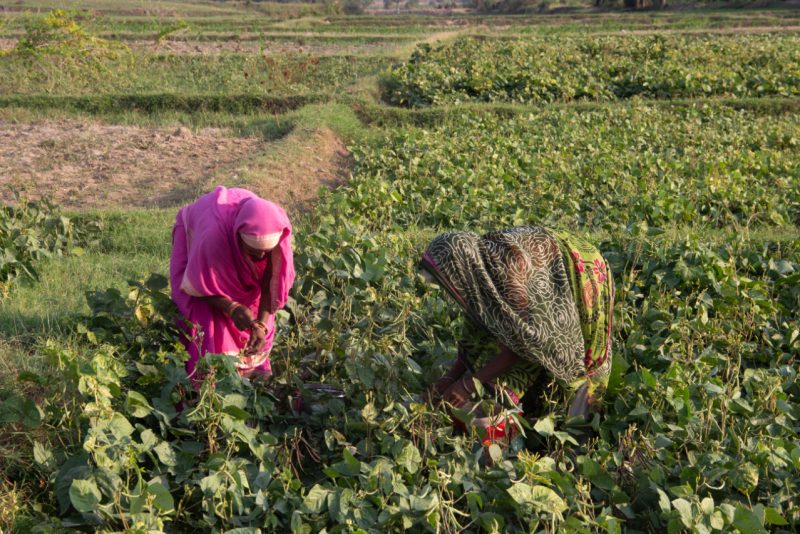Summer internships offer students experiential learning opportunities “that enhance and complement their career goals and academic progress, while enriching their undergraduate experience with diverse cultural and international immersion.” The Tata-Cornell Institute, in collaboration with the CALS Global Fellows Program, has developed summer internship opportunities in India based at research locations and in conjunction with field-based NGO partners. Through a new partnership with WorldFish, Cornell undergraduate student Axel Letondot investigates how fish might be incorporated into local diets and government safety net programs to improve nutrition in an internship that connects classroom learning to real-world implementation. Axel in his own words:
First impressions
Although I was expecting the hot weather, I was still unprepared for how hot it actually was upon arrival at the New Delhi airport. (Stepping outside felt like a space heater 5 feet from my face!) This time of year, India is impressively hot.
For orientation, I spent my first few days between the TCI office and exploring the city. I really enjoyed walking around Delhi without a plan or destination, just soaking up the new world I was in.

Walking around the crowded streets of Delhi, teeming with life. (Photo credit: Axel Letondot)
A week after arriving in India, I left Delhi to begin my work in the eastern state of Odisha with an NGO partner called WorldFish. Starting my internship was very exciting. I really enjoyed creating my new morning routine – what time to wake up, what to have for breakfast and how to get to work. I felt well-prepared for my project and was excited to begin conducting field work.
Harnessing fisheries and aquaculture to reduce hunger
Malnutrition is widespread in Odisha. It is estimated that 45% of children under five suffer from chronic malnutrition, in particular with severe micronutrient deficiencies. Undernourishment in adults is also a large problem in the state, especially in women of childbearing age. This leads to high rates of maternal mortality and the birth of unhealthy babies. WorldFish is an international organization working on what they call the 3As – making fish more Available, Accessible and Affordable in Odisha. Fish is rich in many nutrients that are lacking in most Odiyan diets. Therefore, including fish into Odiyan diets represents a great way to reduce many micronutrient deficiencies present in the state.
My specific project is to examine how fish can be made accessible to vulnerable groups like pregnant woman and children through government programs. The two government programs I am looking at in particular are the Mid-Day Meal Scheme (MDMS) and Integrated Child Development Services (ICDS) programs. The midday meal is a school feeding program and the ICDS programs are set up to help pregnant and lactating women ward off malnutrition through food packages and hot meals. I will be exploring how fish can be incorporated into these two programs as well as the level of acceptance of fish from the beneficiaries of these programs.
From classroom to development practice
As a student studying international development, learning how programs, projects and extension are actually carried out has been extremely valuable. Witnessing extension in practice and comparing it to the theory I’ve learnt and discussed so extensively in class has been fascinating. I was lucky enough to be present at a fish research and extension center while government officials from a neighboring state were there to receive training on new fish farming practices. Hearing the concerns that were raised by the government officials as well as being able to observe how information was extended to them was a fantastic experience that complimented my in-class education in a unique and important way.

Tata-Cornell Global Intern Axel Letondot with local government officials in Odisha at the extension center. (Photo provided by Axel Letondot)
Another development activity I was privileged to be a part of was extension in a small village. In this activity, five WorldFish representatives and I drove to a remote village to promote the regular uptake of fish in meals. The people from the village who were present were made aware of the many important vitamins and minerals present in fish and why they are crucial for human development and health. Again, this type of activity and extension is one that I have learnt about in class, and it was very interesting to see how the best practices I had discussed through case studies were implemented in the real world. For example, it is important when conducting this type of extension to make sure that the location and time of the meeting is the most convenient for the beneficiaries of the extension. In this case, the centrally-located school was strategically chosen for this activity and the meeting happened right before lunch on a Friday, a time when many people could attend. Seeing this process in practice was educational and enlightening.
Another way in which this internship in India has uniquely complemented my formal education at Cornell is by learning about funding in the NGO world. Funding is almost never talked about in class readings or discussion, and it is no doubt one of the most vital parts of these development activities. Embedding with WorldFish through TCI and the CALS Global Fellows Program has helped me develop a better understanding of the sources of funding, the mandates that come with this funding and the politics of securing funding. Although perhaps not the most glamorous part of development work, understanding these processes are vital for project design and management.
Finally, I see this internship is helping me to develop my research and data collection skills in tangible way. In my first two weeks at the WorldFish office, I finished designing my own report and will soon be going out and collecting data in the field.
Final reflections
After a few weeks in India, the heat has become a little less oppressive. However, it is still incredibly hot. Thankfully, most places like work, my accommodation and most cars are air-conditioned.
I can now say that I have had Indian food everyday for the past month, which is something that I never thought I would be able to say. A great accomplishment. I have really enjoyed trying different types of Indian food from breakfast foods to desserts to little snacks.
One activity I have particularly enjoyed participating in is watching cricket. This summer, the Cricket World Cup was going on in England and India played well. Watching the games has been lot of fun (especially the heated India-Pakistan match).
I have really enjoyed my time here and I am excited to see what the next month of fieldwork will bring.
By Axel Letondot
Axel Letondot is a rising senior at Cornell University studying International Agriculture and Rural Development. This summer, thanks to the Tata-Cornell Institute and in collaboration with the CALS Global Fellows Program, he is working in India on improving the nutritious content of government feeding programs. Axel is passionate about economic development and food security; after graduating, he hopes to work with an international organization addressing these issues.







